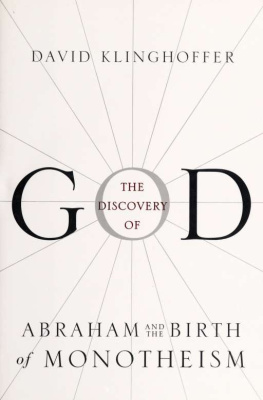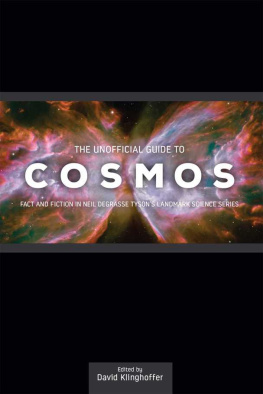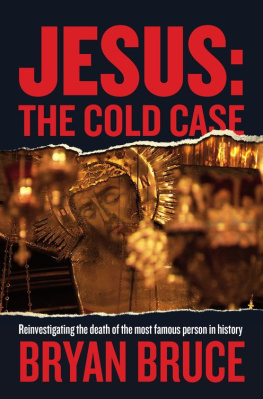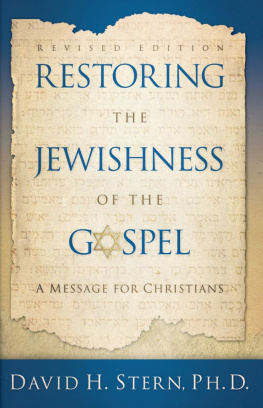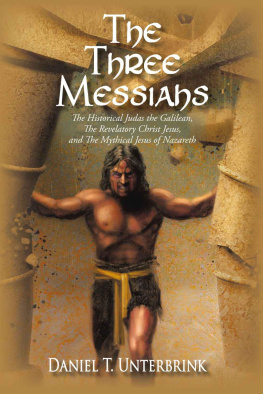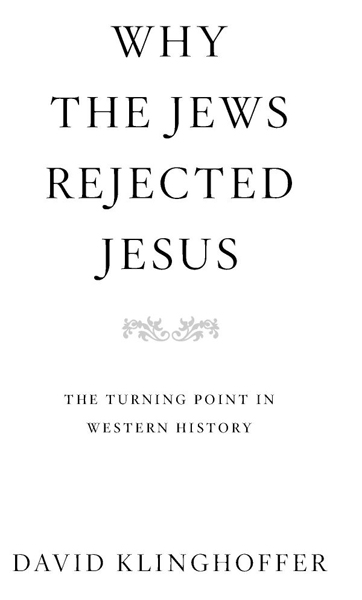David Klinghoffer - Why the Jews Rejected Jesus: The Turning Point in Western History
Here you can read online David Klinghoffer - Why the Jews Rejected Jesus: The Turning Point in Western History full text of the book (entire story) in english for free. Download pdf and epub, get meaning, cover and reviews about this ebook. year: 2007, publisher: Harmony/Rodale, genre: Religion. Description of the work, (preface) as well as reviews are available. Best literature library LitArk.com created for fans of good reading and offers a wide selection of genres:
Romance novel
Science fiction
Adventure
Detective
Science
History
Home and family
Prose
Art
Politics
Computer
Non-fiction
Religion
Business
Children
Humor
Choose a favorite category and find really read worthwhile books. Enjoy immersion in the world of imagination, feel the emotions of the characters or learn something new for yourself, make an fascinating discovery.

- Book:Why the Jews Rejected Jesus: The Turning Point in Western History
- Author:
- Publisher:Harmony/Rodale
- Genre:
- Year:2007
- Rating:3 / 5
- Favourites:Add to favourites
- Your mark:
Why the Jews Rejected Jesus: The Turning Point in Western History: summary, description and annotation
We offer to read an annotation, description, summary or preface (depends on what the author of the book "Why the Jews Rejected Jesus: The Turning Point in Western History" wrote himself). If you haven't found the necessary information about the book — write in the comments, we will try to find it.
In WHY THE JEWS REJECTED JESUS, David Klinghoffer reveals that the Jews since ancient times accepted not only the historical existence of Jesus but the role of certain Jews in bringing about his crucifixion and death. But he also argues that they had every reason to be skeptical of claims for his divinity.
For one thing, Palestine under Roman occupation had numerous charismatic would-be messiahs, so Jesus would not have been unique, nor was his following the largest of its kind. For another, the biblical prophecies about the coming of the Messiah were never fulfilled by Jesus, including an ingathering of exiles, the rise of a Davidic king who would defeat Israels enemies, the building of a new Temple, and recognition of God by the gentiles. Above all, the Jews understood their biblically commanded way of life, from which Jesuss followers sought to free them, as precious, immutable, and eternal.
Jews have long been blamed for Jesuss death and stigmatized for rejecting him. But Jesus lived and died a relatively obscure figure at the margins of Jewish society. Indeed, it is difficult to argue that the Jews of his day rejected Jesus at all, since most Jews had never heard of him. The figure they really rejected, often violently, was Paul, who convinced the Jerusalem church led by Jesuss brother to jettison the observance of Jewish law. Paul thus founded a new religion. If not for him, Christianity would likely have remained a Jewish movement, and the course of history itself would have been changed. Had the Jews accepted Jesus, Klinghoffer speculates, Christianity would not have conquered Europe, and there would be no Western civilization as we know it.
WHY THE JEWS REJECTED JESUS tells the story of this long, acrimonious, and occasionally deadly debate between Christians and Jews. It is thoroughly engaging, lucidly written, and in many ways highly original. Though written from a Jewish point of view, it is also profoundly respectful of Christian sensibilities. Coming at a time when Christians and Jews are in some ways moving closer than ever before, this thoughtful and provocative book represents a genuine effort to heal the ancient rift between these two great faith traditions.
David Klinghoffer: author's other books
Who wrote Why the Jews Rejected Jesus: The Turning Point in Western History? Find out the surname, the name of the author of the book and a list of all author's works by series.

